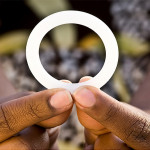Scientists from the Scripps Research Institute in La Jolla, San Diego, have been able to isolate two neutralizing antibodies that can prevent HIV from multiplying in the body and progressing to AIDS, the Los Angeles Times reports. This discovery, published in the journal Science, may prove beneficial in HIV vaccine development.
According to the article, researchers collected blood samples from more than1,800 HIV-positive people living in Thailand, Australia and Africa, all of whom had been living with the virus for at least three years without progressing to AIDS. Scientists at Monogram Biosciences in South San Francisco studied the blood samples most resistant to infection. A team from Theraclone Sciences in Seattle then isolated antibodies that were responsible for HIV resistance in an African patient, PG9 and PG16; the antibodies were able to block the activity of three quarters of the 162 separate strains of the virus that were tested against them.
Later, scientists from Scripps bound PG9 and PG16 to two proteins on the surface of HIV, gp120 and gp41, that help the virus invade cells. The hope in the finding is that researchers will discover molecules—synthetic or natural—that can stimulate the body to produce the neutralizing antibodies on its own.
The research was funded and coordinated by the International AIDS Vaccine Initiative.
Advertisement
Advertisement
Advertisement






Comments
Comments